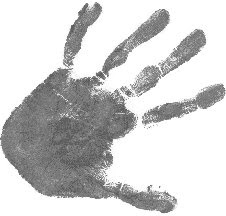life of a coal cracker
This link is primarily for a list of fatalities in West Virginia coal mines from 1883 to 1925. They also give a brief history of coal mining. The rest of this post are cuts from that site that give insight into miners' lives. I haven't touched the text except to correct a couple instances of clearly erroneous punctuation. The details just makes your head shake. Here's the excerpts ...
Their wages, as of 1913, were 48 cents per ton of coal. The annual wage for a pick miner was $737.62, an increase of $119.10 over the previous year's earnings.
The feudal system (coal companies being the "Barons of the Manor" and coal miners being the serfs) made it possible for the miner to live in housing consisting of rough lumber with no indoor plumbing and to do his necessary shopping at the company store where he might purchase on credit. He was paid in a "play money" called "scrip" which was exchangeable only at the company store. He was required to furnish his own tools and blasting powder, which he purchased at the company store.
If he were married, the needs of a growing family usually outstripped his ability to provide for them on the wages he earned, thus most of them were perpetually in debt to the company store. Most married miners had a little kitchen garden to produce some of their food needs. When his wife had need of obstetrical attention, or if there were family illnesses, the company doctor was called in, and the miner had that expense deducted from his wages. more than one miner, at the end of a pay period, would pick up an empty pay envelope because his indebtedness had taken all he earned.
The daily living conditions of coal miners "pre-Unions" is so well known that historians need only consult older family members for more details. Mr. William O. Williams, now deceased, had worked in the mines of Logan, Boone, and Kanawha Counties, also in Pittsburgh, Pa., for 40 years and spoke of coal mining, as he had known it, as being "The meanest life in the world". He spoke of bad air, miners being trapped behind smoke and being Unable to get out, pins not holding and causing the slate to fall, water seeping into the mine shafts making working conditions damp and cold, and the sheer physical agony of working in a narrow seam of coal all stooped over, or laboring on his knees in a puddle of water for the entire duration of a shift.
Deadly methane gas, being odorless, was a silent killer "of many miners" but far more miners died of black lung, a disease where the air sacs of the lungs are destroyed from breathing coal dust- Mr. Williams said that the coal companies for many years, until legislation forced some changes, refused to recognize black lung as a valid medical disability caused by working conditions. Many company doctors would diagnose respiratory disorders as nearly anything but black lung. One coal company doctor had told Mr. Williams, "Breathe coal dust! It's good for you!". At the time of his death in 1983, he was receiving benefits for black lung.
Many miners trapped underground during explosions did not have their bodies recovered. The mine shaft was sometimes Permanently sealed off, and somewhere inside another "statistic" sleeps until the resurrection. An in-depth look at these REPORTS reveals that some miners were not even known by name. "Italian #14," for example, perished in a Kanawha County coal mine, and only those who spoke his native tongue might have known who he was.














No comments:
Post a Comment